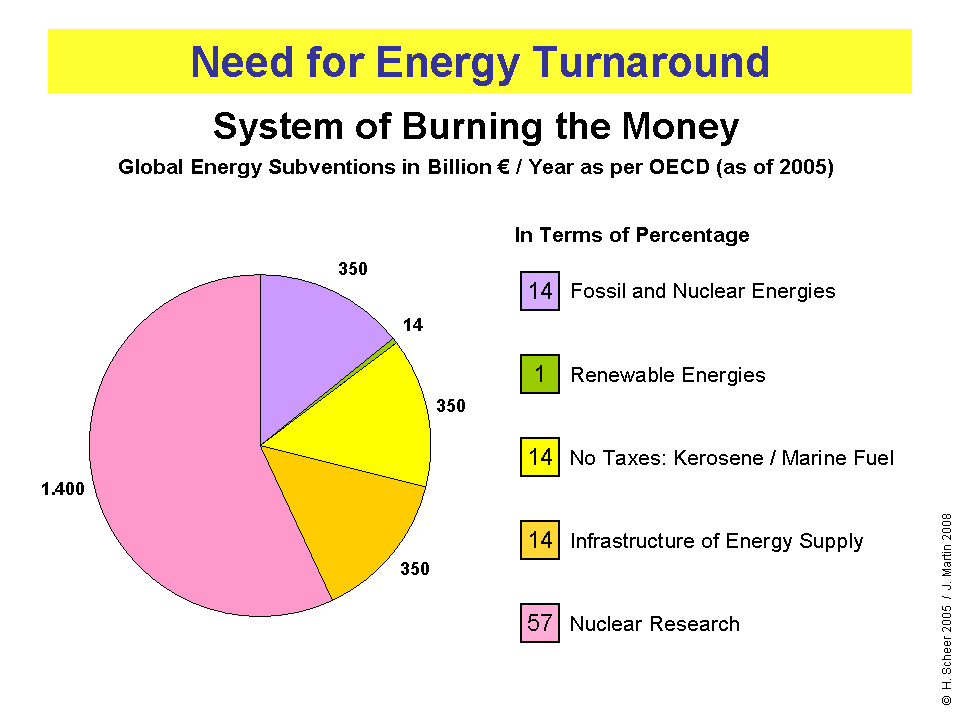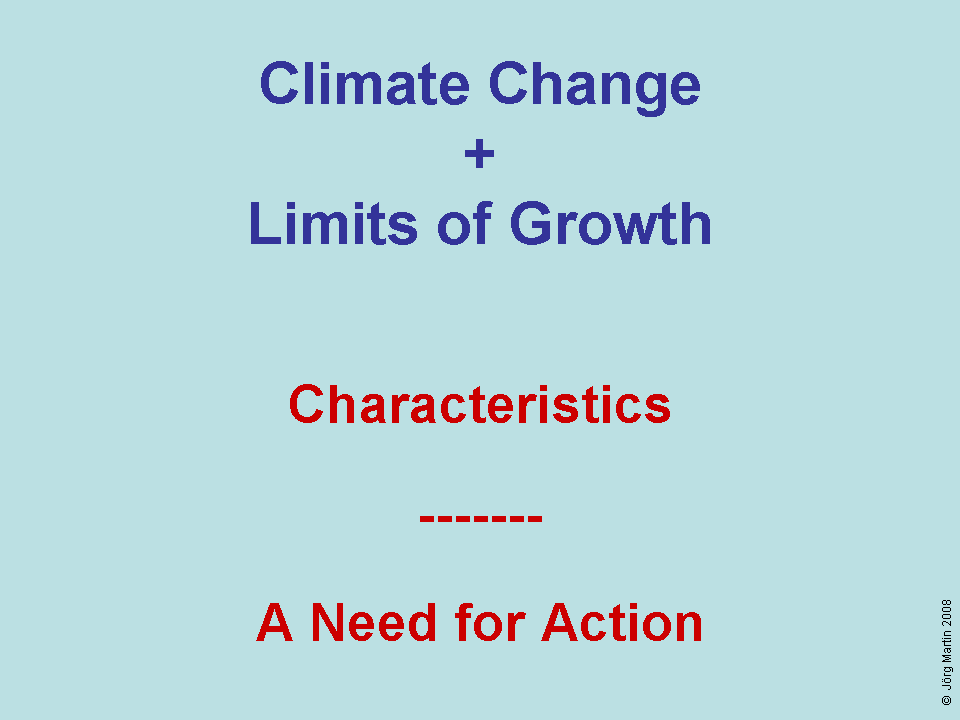
| Political | |
| • | Lack of Design Loads |
| • | Need for Security |
| • | Need for Action |
| Individual | |
| • | Possible Action |
| • | Need for Action |
| Energy Sector | |
| • | Money-burning System |
| • | Fossil-nuclear Energies |
| • | Renewable Energies |
| • | Economic Viability |
| Economy | |
| • | Ignored Warnings |
| • | Criminal Methods |
Money-burning System
According to the information base available from the OECD, the maintenance and continued expansion of fossil and nuclear energy supply loaded the national economies with yearly expenditures of around 2.1 trillion €. This included around 350 billion € in tax subsidies for kerosene and marine diesel fuel[52].
Together with expenditures for operation and the expansion of infrastructure for the transportation of the energy sources listed, yearly costs of around 2.5 trillion € were incurred.
57 percent of the given amount was allotted to nuclear research alone, that is, around 1.4 trillion €.
On the other hand, investment for the further expansion of renewable energies, with a yearly amount of around 14 billion €, was minutely small. This does not even amount to 0.6 percent of the stated total expenditures.
These numbers point to a serious economic disadvantage for renewable energies. At the same time, they show a danger vehemently ignored until now: the capacity of fossil / nuclear energy sources is limited. These resources will no longer be available for the supply of energy in the foreseeable future. More precisely said, the availability of fossil / nuclear energy sources reduces exponentially. According to Club of Rome reports[53], the associated capacity limit was exceeded in the year 1980.
Expressed in another manner, over 2 billion € per year are, so to speak, burned up. If these financial resources had instead been invested in the improvement of renewable energies, then a durable sustainable energy supply would have already long been secured today.
The past global disregard for these problems draws attention to grave omissions by the responsible decision-makers. In 1908, the U.S. president at that time, Theodore Roosevelt, had already strongly emphasized the great danger of energy production using fossil fuels.[54]
| Associated Slide |
 |
| Illustrating Slides |
 |
| Slide 1 |